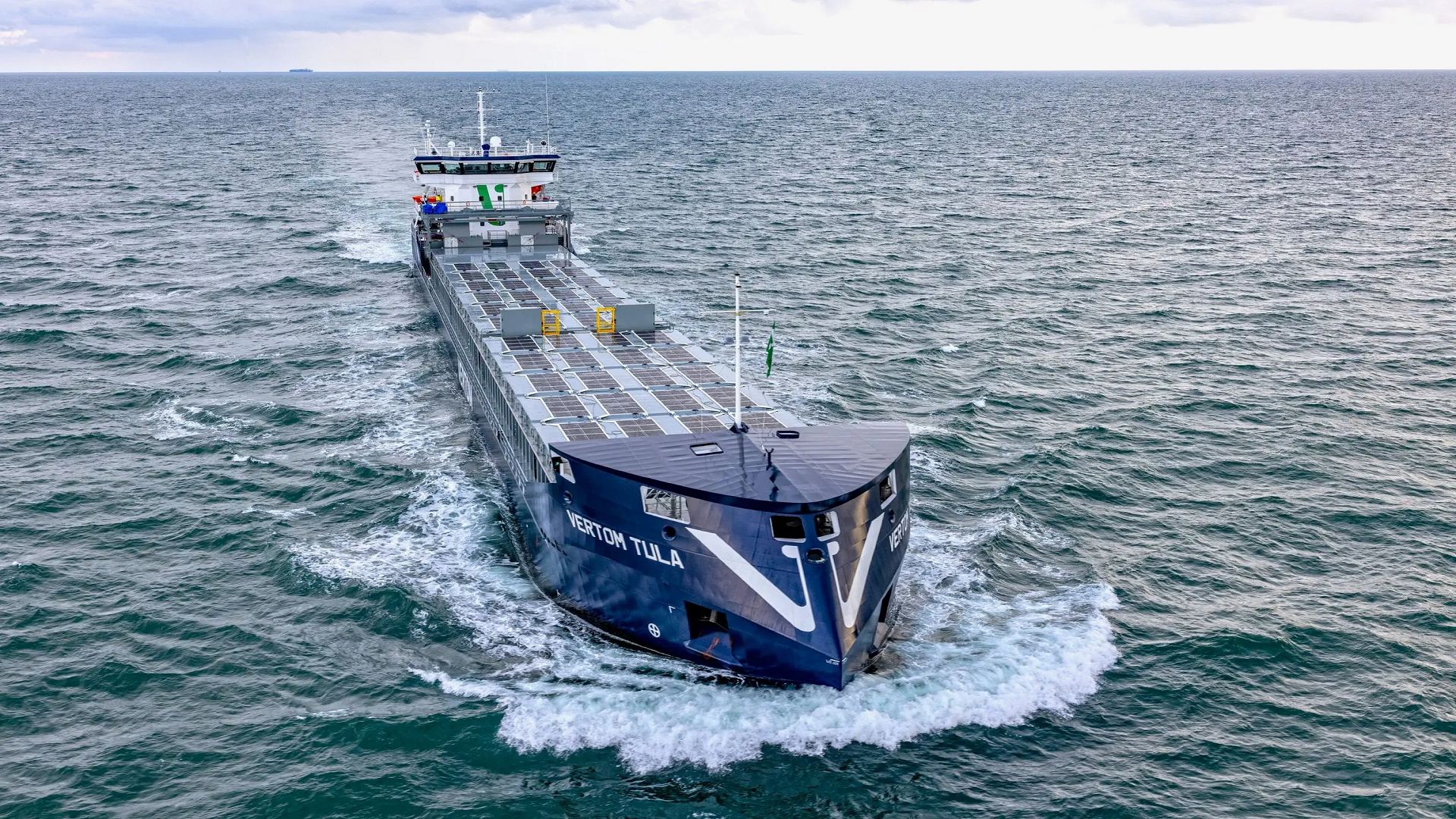Copyright Interesting Engineering

A maritime solar energy company in the Netherlands has just installed the world’s first full-scale solar energy system on a seagoing cargo ship making a great step forward for sustainable shipping. The system was developed by Rotterdam-based clean energy specialist Wattlab. It was then fitted on the 7,280 deadweight ton (dwt) diesel-electric cargo vessel MV Vertom Tula, which is owned by maritime services operator Vertom Group. The new innovative solution was designed to reduce onboard emissions and fuel use while providing reliable renewable power at sea. It includes 44 Solar Flatracks that deliver about 79 kilowatts peak (kWp) of installed solar power. As per Wattlab, that is enough to cover about 20 percent of the ship’s hotel load, the energy consumed by onboard systems such as lighting, navigation and air conditioning. “We thank Vertom for their trust and the smooth collaboration in the past three years,” Bo Salet, Wattlab’s CEO and co-founder revealed. Solar power hits the seas The solar system’s installation took place in September at the Port of Harlingen and was completed in a single day thanks to its modular design. It makes the MV Vertom Tula the first seagoing vessel in the world equipped with a full-scale solar installation. “For shipowners, time is money, so speed and ease of use are important,” Salet said, adding that space also comes at a cost. “Hence, should the panels need to be removed to make way for a special type of cargo, the crew can easily stack and store them all on the footprint of one 20-foot container.” Manufactured and assembled at Wattlab’s new facility, the Solar Flatracks can be quickly installed or removed using standard container fittings. To test them, the two companies carried out two pilot projects in harsh coastal conditions, over a period of three years. “During the pilots, the test results showed that the Solar Flatrack system performs well in the tough coastal shipping environment,” Thomas van Meerkerk, Vertom’s business development manager, said. A solar boost for vessels The tests were validated by the Netherlands Organization for Applied Scientific Research (TNO). They confirmed that the Solar Flatracks performed reliably and maintained power generation and structural integrity even in the demanding marine environment. “Of course, these things also depend on the conditions our vessels operate in, but it’s clear that the system can provide both a positive ROI and contribute to CO2 reduction in shipping,” Salet elaborated. Salet also said that another advantage of the panels is that they can stay on the hatch covers even during loading and unloading operations. “The crew was skeptical at first, fearing a lot of extra work,” he added in a press release. “However, they soon learned that in practice, Solar Flatracks are easy to use and require minimal maintenance,” he continued and stated that the panels don’t form salt crusts, as water drains off easily. The project was co-financed by the European Union’s Just Transition Fund (JTF), which is part of the EU’s broader strategy to achieve climate neutrality by 2050. Both companies believe that the technology could help make short-sea and coastal shipping more environmentally friendly.



